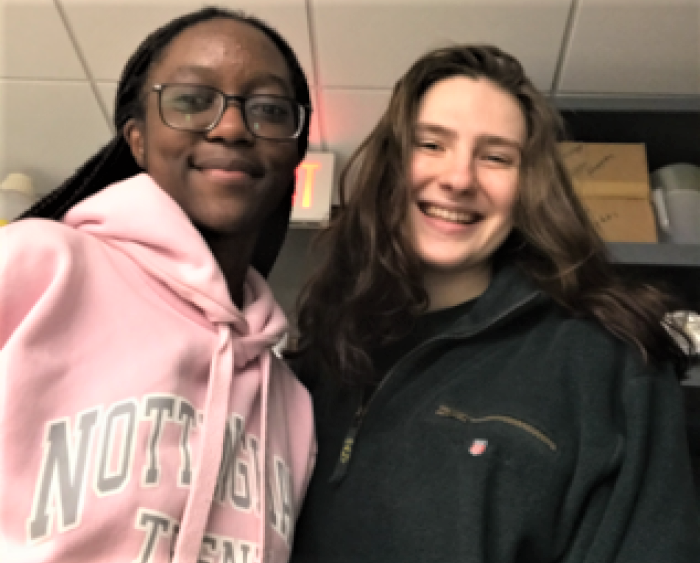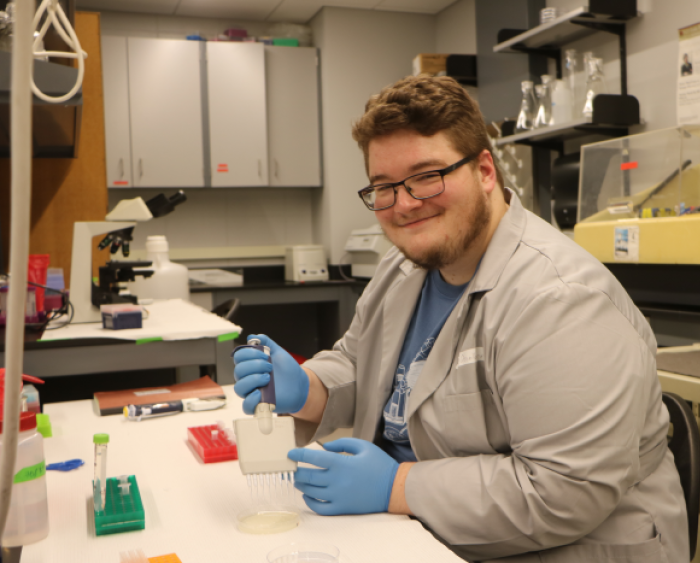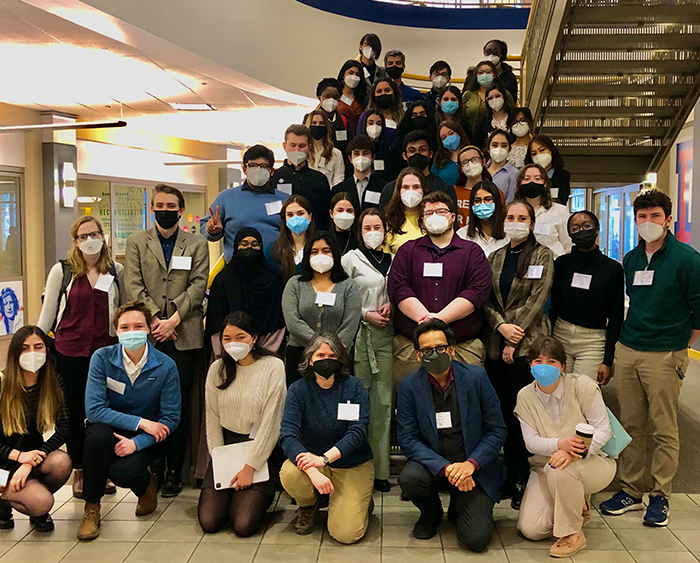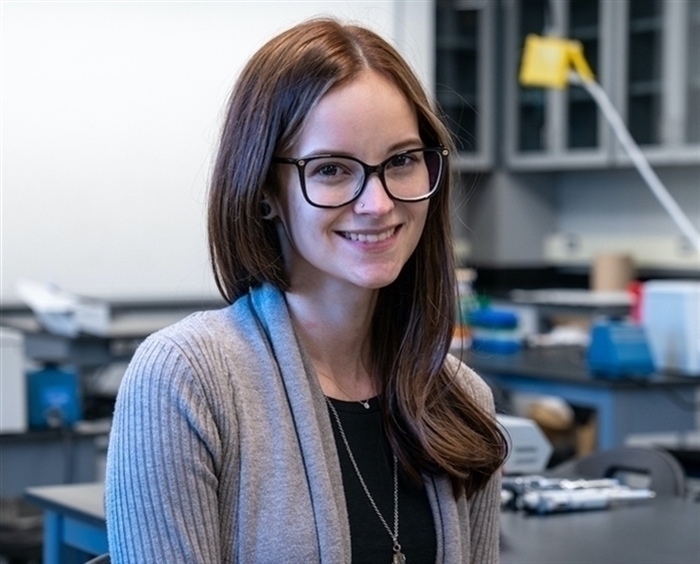
Neuroscience faculty pursue research programs in biology, psychology and philosophy that are designed to engage students as research scholars. Faculty and student researchers collaborate closely to contribute to the process of discovery and advancement of knowledge.
Below are descriptions of each faculty lab. Interested students should individually contact the faculty member.
I am interested in designing computer programs that can understand and interpret visual information like humans do. In particular, I'm interested in understanding whether the visual patterns used by a Machine Learning program to understand images are the same as those used by humans. The visual information can be in the form of photographs, videos, paintings, scanned documents, or images of any other kind. My most recent research focuses on AI-assisted medical diagnosis using radiological data such as x-ray, CT-scan or MRI-scan images. Working in my projects, students learn image processing with Python, Machine Learning and Artificial Intelligence techniques, and how to work with large image datasets. Students interested in doing research with me can contact me at banerji@lakeforest.edu.
I am a behavioral ecologist interested primarily in sexual selection. I study mating behavior employing insects as model species, both in the field and the laboratory. My current research is on katydids and moths, but I have also worked with flies, beetles and treehoppers.
I am fascinated by the degrees of elaboration and variation in animal mating traits, including courtship displays, mating songs, elaborate genitalia and nuptial gifts (items offered to a mate during courtship or copulation). In most species, males compete for mates, while females have mate preferences, choosing their mates based on certain male traits. Female preferences can therefore exert strong selective pressure on males, playing a major role in the elaboration and diversification of mating traits, and potentially generating population divergence and speciation. My research focuses on the evolution of traits used to attract mates, the costs and benefits of reproductive investments, and the mechanisms and functions of mating preferences.Students interested in joining my lab can contact me at barbosa@lakeforest.edu
Professor Barbosa’s website
I am interested in the neurobiology and neurochemistry underlying motivated behavior, particularly the behavioral correlates of substance use disorders. My research involves translational animal models; in other words, I look for ways to study human behaviors and conditions using rodents as an experimental model. Like humans, rodents will work for and consume a variety of drugs. By combining behavioral tasks (such as operant self-administration) with neurobiological or neurochemical manipulations (such as intracranial microinfusion), I hope to elucidate the ways in which certain neural circuits, neuronal populations, or neurotransmitter systems contribute to behaviors like drug-seeking, drug intake, and inhibitory control.
“I am fascinated with how cells manipulate protein shapes. Proteins are the most diverse class of molecules in our cells and their unique functions and shapes hold the secrets of life. If proteins still misfold, they are targeted for destruction to preserve cellular health. But some misfolded proteins that such escape quality control, build up in tissues and cause tragic incurable diseases. I collaborate with undergraduates to investigate the protein folding mysteries underlying one such illness: Parkinson’s Disease, which is caused by the misfolding of protein, alpha-synuclein. My students are seeking to understand how alpha-synuclein misfolding and problems with its clearance causes cell death by using innovative experimental model systems: budding and fission yeasts. Students interested in joining my lab can contact me at debburman@lakeforest.edu.”
DebBurman Lab website
One major goal of research in the Delventhal lab is to uncover molecular mechanisms that underlie the physiological and behavioral changes observed in neurodegenerative diseases, such as Alzheimer’s and Parkinson’s disease. To do this, we use a model of Traumatic Brain Injury (TBI) to induce neurodegenerative phenotypes in the fruit fly, Drosophila melanogaster. We are interested in measuring the physiological, behavioral, and molecular changes that occur over time following an early-life TBI event. We aim to better understand the kinetics of these TBI-induced changes, and how they interact with aging processes, in the short-, mid- and long-term periods of time following an injury. Furthermore, we hypothesize that brain injury triggers changes that may occur in many common neurodegenerative diseases, and we hope to identify and study how these molecular pathways to the deterioration of the nervous system. The Delventhal lab is passionate about undergraduate research mentoring and improving the inclusion of students from historically marginalized backgrounds in STEM career pathways. For more information, visit https://www.delventhallab.com/ or email Dr. Delventhal at rdelventhal@lakeforest.edu
I research causal and moral reasoning, the judgments associated with these reasoning processes, and the moral and political decisions that result from them. My lab uses the tools of cognitive science to investigate philosophical issues related to morality and causation. This is a new field called experimental philosophy. Our current projects investigate the relationship between the tendency to consider alternative possible events and ordinary causal judgments that come up in moral, legal, scientific domains. We plan to use these findings to investigate how causal reasoning affects human behavior.
I am a computational mathematician and computer scientist with specializations in computational algebraic geometry, algebraic statistics, and machine learning (especially neural network methods). My research consists of four general strands: (1) developing models to simulate human-like processes in computers, such as simulating the conjunction fallacy; (2) using machine learning to further mathematical research agendas in algebra and combinatorics, such as predicting the size for a Groebner basis; (3) applying machine learning methods to other academic disciplines, such as predicting the age of a patient based on their MRI scans; and (4) utilizing methods in mathematics and computer science to solve popular problems the public can relate to, such as determining the best first move in Wordle. If you have an interest in one of these four strands or want to propose a research idea, please contact me at sjamshidi@lakeforest.edu.
“I am interested in discovering the general principles that govern human memory over the short- and long-term. Presently, I am exploring a variety of counterintuitive memory phenomena, such as collaborative inhibition (memory impairment when recalling with a partner), hypermnesia (memory improvement with the passage of time), part-set cuing (memory impairment with hints), and the generation effect for lyrical censorship (enhanced memory for unheard relative to heard information). Students interested in joining my lab can contact me at kelley@lakeforest.edu.”
Our lab studies behavioral and biological responsiveness to social stimuli and psychosocial stress, the neuroendocrine bases of human decision making and cooperation, and subjective anxiety in educational environments. We ask questions such as - how do individual differences in reactions to social stimuli moderate the way stress affects our decision making? Does this process also affect the way we learn in a stressful classroom environment? And how do we continue to study this during a time when stress and anxiety have been increasing over the last two decades at higher rates? Students who are interested in joining our lab can contact me (Dr. Nora McLean) at nmclean@lakeforest.edu.
My laboratory examines the intrinsic and extrinsic factors that regulate neuronal cell death in particular diseases. Current work investigates the cell and molecular biology of Alzheimer’s disease (AD) and attempts to understand mechanisms involving the major proteins linked to the disorder. One project examines the regulation of proteases that cleave the amyloid precursor protein (APP) to produce the pathogenic amyloid beta peptide. A second project focuses on the functional evolution of the BACE1 enzyme and its APP/amyloid beta substrate.
My research focuses on the design and development of “haptic” mobility aids for blind and visually impaired children. “Haptics” refers to gentle, informative vibrations such as those produced by smart phones, video game controllers, and virtual reality devices. This research integrates information from neurobiology, psychology, electronics, and computer science. Our overall goal is to create comfortable, practical mobility aids that will help visually impaired children navigate safely. We are currently working on two projects: a denim jacket and a white cane each of which sense objects and obstacles in the near environment and provide tactile feedback to the user. Videos of students’ research can be found at http://www.hapticinsight.org.
I am interested in how animals gather information about their environment through their sensory systems and how this information influences an animal’s behavior. I combine the study of neuroethology (neural basis of behavior), animal physiology (internal functions of animals), and animal behavior to investigate how the detection of certain stimuli by a sensory system contributes to the animal’s overall behavior. My current research focuses on the lateral line system in fish. Fish use their lateral line systems to detect water flows generated by biotic (predators, prey, other fish) and abiotic (rocks, waves) sources. This information is used in several behaviors including predator avoidance, feeding, schooling, and communication. I study several components of the lateral line system, including its distribution on a fish’s body, its sensitivity and filtering capabilities, and its role in swimming, feeding, and schooling behaviors. Students interested in joining my lab can contact me at schwalbe@lakeforest.edu.
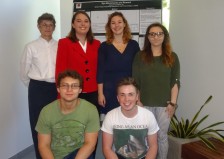 “I study the development of voluntary behavioral control, mostly in infants and young children. I am particularly interested in the processes that allow us to regulate our behavior so that we can make the correct, though less automatic response, rather than the habitual, though incorrect response. In other words, students in my lab study the origins and development of self-control. In our current studies, we collect eye movement and brain wave data from infants and young children as they perform various visual-spatial tasks in which two response tendencies compete. Students interested in joining my research lab can contact me at wentwort@lakeforest.edu.”
“I study the development of voluntary behavioral control, mostly in infants and young children. I am particularly interested in the processes that allow us to regulate our behavior so that we can make the correct, though less automatic response, rather than the habitual, though incorrect response. In other words, students in my lab study the origins and development of self-control. In our current studies, we collect eye movement and brain wave data from infants and young children as they perform various visual-spatial tasks in which two response tendencies compete. Students interested in joining my research lab can contact me at wentwort@lakeforest.edu.”


